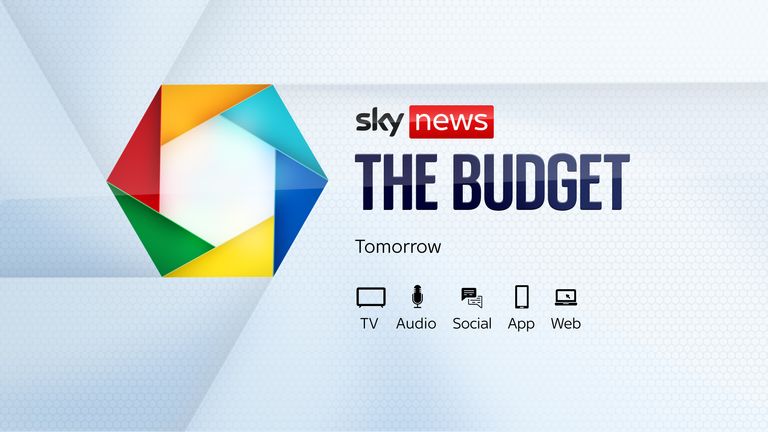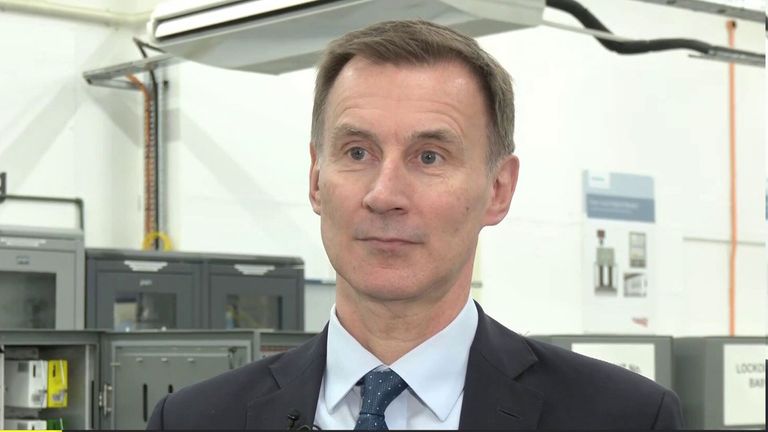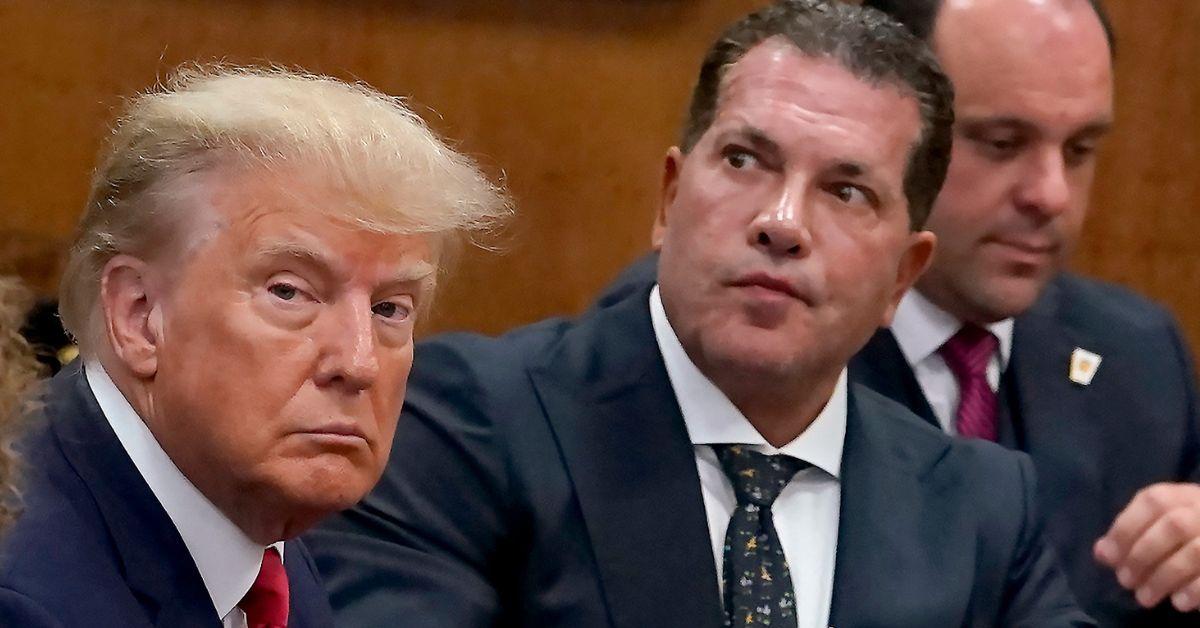Jeremy Hunt set to cut national insurance by two percentage points at budget | Politics News
Jeremy Hunt is set to cut national insurance by a further two percentage points in Wednesday’s budget, as he looks to give a tax break to working people.
Amid much discussion between income tax and national insurance cuts, Jeremy Hunt looks to be prioritising a tax cut for an average of 27 million workers as he builds on the two percentage point national insurance cut that came in this year.
In total, the chancellor will be able to say he is cutting taxes by an average of £900 this year.
Politics latest: Election is just two months away, Labour predicts
Many Conservative MPs want the chancellor to cut income tax by two percentage points in the March budget as a more headline-grabbing decision that benefits more voters, including pensioners, but Treasury insiders said the chancellor has leaned in towards a national insurance cut because it applies across the UK – Scotland sets its own income tax thresholds – and is designed to “make work pay”.
Government figures have been playing down a big tax-cutting budget, arguing that various tax cuts – be it around inheritance tax or stamp duty – have fallen away because of deteriorating economic forecasts, which has limited his scope.
Recent Office for Budget Responsibility forecasts have given the chancellor £13bn of headroom, against his fiscal rule to have debt falling as a share of gross domestic product in five years’ time.
The chancellor’s decision to cut national insurance by two percentage points will cost around £10bn.
With limited headroom, Mr Hunt will also need revenue raisers in Wednesday’s budget and is considering taking Labour’s plan to limit tax breaks for foreign domiciled nationals living in the UK – Labour were looking at raising £2bn in tax from this.
Read more:
Fuel duty freeze set to be extended again in budget
‘No’ election in May, minister claims
Tax cuts will need to be ‘undone’ after election – economist
A new levy on vaping is on the cards, as is tax on air passenger duty for business class travel and tax breaks for those who rent out second homes for holiday lets.
The chancellor is also considering cutting back plans to increase departmental spending by just 0.75% a year, instead of 2% to raise around £5bn.
However, many Conservative MPs eyeing the huge gulf in the polls want the chancellor to go further on tax cuts.
Dame Priti Patel, former cabinet minister, said she and many colleagues now wanted movement on income tax.
“We’ve had national insurance cuts already, we had one in the Autumn Statement, that is why I think the best way forward would be to balance that out with an income tax cut,” she said, calling on the chancellor to deliver a two percentage points income tax cut.
“You’ve seen the numbers, more and more people, up to four million more people will be dragged into paying higher rates of taxation because those thresholds haven’t changed by 2029. And I think we need to do something about that.”
However, the insiders are playing the prospect of bigger tax cuts beyond national insurance down, insisting that his room of manoeuvrability is limited. Mr Hunt’s approach is likely to be consistent with the last three fiscal events, in which he prioritised economic growth, workers and cutting inflation.
Click to subscribe to the Sky News Daily wherever you get your podcasts
Despite all the briefings in the past few days, Labour is planning on the basis that the chancellor will do something on income tax, with the opposition party working on the basis that his headroom is bigger than billed – it has pencilled in £25bn – and the chancellor could afford to do both.
Analysis done internally by Labour shows that even with 3p in income tax people are still worse off because the threshold increases – with people’s pay going up dragging them into higher tax bands and council tax increases, according to one figure.





